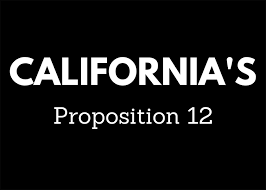The Supreme Court ruled against the National Pork Producers Council and American Farm Bureau Federation in a case challenging California's Proposition 12 rules governing pork production. The 5-4 decision in National Pork Producers Council v. Ross was written by Justice Neil Gorsuch, who said, "While the Constitution addresses many weighty issues, the type of pork chops California merchants may sell is not on that list."
Justice Brett Kavanaugh wrote a partial dissent that many see laying out a potential roadmap for future challenges to laws like Proposition 12. In it, he said, "Although the Court today rejects the plaintiffs' dormant Commerce Clause challenge as insufficiently pled, state laws like Proposition 12 implicate not only the Commerce Clause, but also potentially several other constitutional provisions, including the Import-Export Clause, the Privileges and Immunities Clause, and the Full Faith and Credit Clause. … [I]t will be important in future cases to consider that state laws like Proposition 12 also may raise substantial constitutional questions" under these clauses. Animal rights groups have pledged to pursue more ballot measures like Proposition 12 in additional states, potentially teeing up future challenges on different legal grounds.
In response to the ruling, House Agriculture Committee Chairman Glenn "GT" Thompson (R-PA) said, "I certainly respect the authority of the individual States and I appreciate the Supreme Court's instinct to exercise caution when adjudicating conflicting state interests. That said, I am disappointed in today's decision on California's Proposition 12. U.S. producers simply cannot operate in a system where one state can dictate production standards for the entire country. I will continue to review today's decision and explore solutions that ensure the hardworking farmers and ranchers who put the food on the tables of the American people can do so without being unduly burdened by excessive regulation."














